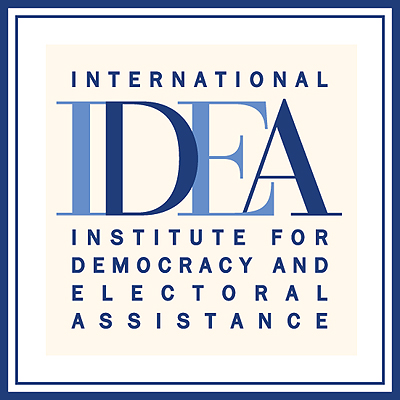Location
Our Mission
"To support sustainable democratic change through providing comparative knowledge, and assisting in democratic reform, and influencing policies and politics"
Our approach
We believe that democracy is a universal human aspiration and an experience that is pursued and lived in different ways around the world. It comes in multiple forms. These forms are in constant evolution. There is no single and universally applicable model of democracy. There is no end point in improving democracy. Fundamentally, democracy is a system in which the government is controlled by the people and citizens are considered equals in the exercise of that control. Beyond the basic tenets of citizens’ choice and citizens’ political equality, the critical choices are best made and the quality of democracy is best gauged by those directly concerned: the citizens themselves. We systematically nurture an open and pluralistic understanding of democracy. This is respectful of the national context, and is in line with our non-prescriptive and non-intrusive approach, as well as with the priorities set by national actors.
Comparative knowledge on democracy
We capture diverse experiences of democracy from the around globe. We assess their potential relevance across countries and regions to incorporate them into our expanding body of comparative knowledge on democracy. In the development of comparative knowledge, we explore the challenges to democratization posed by undemocratic regimes. We support and conduct research in areas that are highly relevant for policymaking or reform processes.
We seek to provide decision makers with accurate information on existing options and their likely implications. We make comparative experiences available to actors across the political and institutional spectrum. This facilitates inclusive processes in which political will for change can emerge. This enables us to help actors to address challenges presented by trends that may adversely impact on and threaten democracy. Through this we are also able to better understand and capture how economic dynamics and technological change affect democracy.
Our efforts to support democratic change build on our convening potential. We facilitate dialogue at the country, expert and international levels.
- At the country level, we engage at the request of governments, parliaments or constitutional/electoral bodies. As a convener and facilitator of dialogue at the country-level, we make knowledge-based policy options available to actors in national reform processes.
- At the expert level, we convene dialogues in order to improve the design and implementation of politics in support of democracy. This enables us to test and pilot the instruments and tools of such new policies.
- At the international level, we engage in multilateral forums and initiatives to build global understanding and synergies on key democracy issues. This enhances the focus on democracy building within the broader international agenda, particularly peace building and state building.
Members:
Resources
Displaying 1 - 5 of 5Bolivia, desarrollo rural constitucionalizado
El documento es un análisis especializado del nuevo texto Constitucional en lo que a Desarrollo Rural Sustentable se refiere y forma parte de MIRADAS, libro publicado por la Vicepresidencia del Estado Plurinacional de Bolivia (VPEP), el Instituto Internacional para la Democracia y la Asistencia Electoral (IDEAInternacional) y la Universidad Mayor de San Andrés (UMSA),
Autonomías Indígenas en las Tierras Altas
Este documento contiene información, análisis, doctrina, legislación comparada y propuestas normativas, relativas al diseño de implementación de autonomías indígenas según la tipología de casos. Los objetivos específicos de la investigación fueron tres: 1. Proporcionar herramientas de información y análisis que faciliten el trabajo legislativo de la Comisión de Descentralización y Participación Popular. 2. Recopilar doctrina y legislación comparada para sustentar las propuestas normativas referidas a la implementación de la autonomía indígena según tipología de casos. 3.
Challenges to democratization in Burma: Perspectives on multilateral and bilateral responses (full report)
A collection of essays, mostly written by activists, on Burma's bilateral and multilateral relations: ASEAN-Burma, Bangladesh-Burma, China-Burma, India-Burma, Thailand-Burma, International Policies towards Burma - Western governments, NGOs and multilateral institutions. "Report looking at Burma/Myanmar's relations with neighbouring states and other governments, and the policies and measures adopted by the international community that may strengthen or reduce the prospects of democratization in Burma/Myanmar.
Challenges to democratization in Burma: Perspectives on multilateral and bilateral responses. Chapter 5 - Thai–Burma relations
I Thai perceptions of Burma;
II Ties with Thailand: a short history;
III Border trade from 1948–1999;
IV Evolution of Thailand’s constructive engagement policy;
V Thai-Burmese technical cooperation 123VI Key issues;
VII New Thai policy towards Burma;
VIII Conclusions.
Challenges to democratization in Burma: Perspectives on multilateral and bilateral responses - Executive Summary, TOC etc.
Contents:
Acronyms;
Preface;
Acknowledgements;
About the authors;
Executive summary;
Introduction;
Background;
Relations with ASEAN;
Bilateral relations;
International policies towards Burma;
Conclusions...
1 ASEAN-Burma relations:
I Historical context;
II Origins of constructive engagement;
III Burma and ASEAN: A troubled marriage;
IV ASEAN and Aung San Suu Kyi;
V ASEAN and the NCGUB;
VI Bilateral relations;
VII Assessment of constructive engagement;




